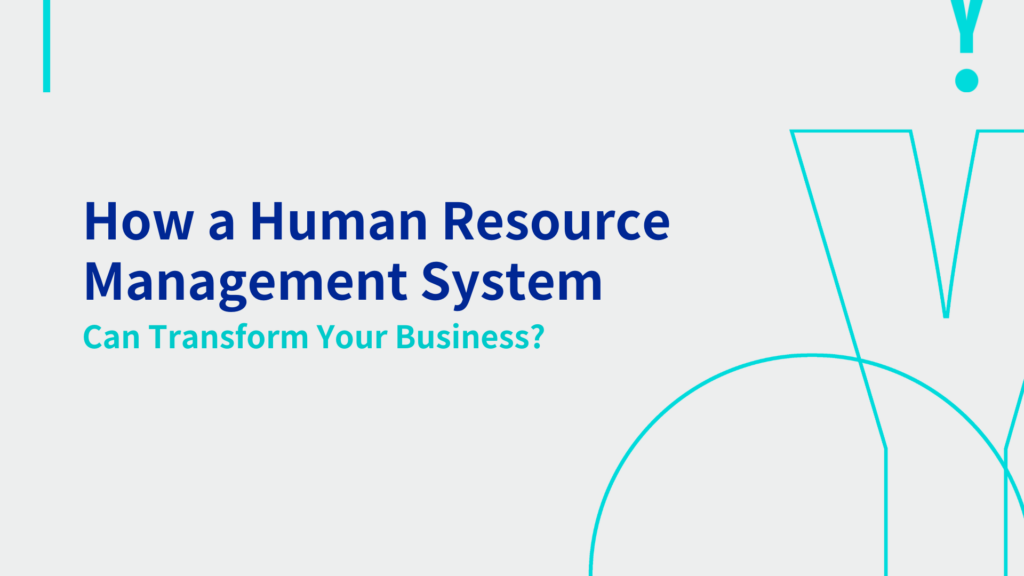
In today’s fast-paced business environment, organisations are increasingly recognising the pivotal role of Human Resource Management System (HRMS) in driving operational efficiency and strategic growth. These integrated platforms automate and streamline core HR functions, enabling businesses to focus on what truly matters: their people. From recruitment and onboarding to performance management and compliance, an HRMS acts as a central hub that connects various HR processes, ensuring consistency and accuracy across the board.
Implementing an HRMS not only reduces administrative burdens but also provides valuable insights through data analytics, empowering HR professionals to make informed decisions. As organisations continue to evolve, the need for a robust HRMS becomes even more critical. This article delves into how an HRMS can transform your business by enhancing efficiency, improving employee experience, and supporting strategic objectives.
- Streamlining HR Processes for Operational Efficiency
- Enhancing Recruitment and Onboarding Processes
- Improving Employee Engagement and Retention
- Ensuring Compliance and Risk Management
- Leveraging Data Analytics for Strategic Decision-Making
- Supporting Scalability and Organisational Growth
- Enhancing Learning and Development Opportunities
- Final Words
Streamlining HR Processes for Operational Efficiency
One of the primary advantages of an HRMS is its ability to automate routine tasks such as payroll processing, attendance tracking, and benefits administration. By reducing manual intervention, businesses can minimise errors and ensure the timely execution of HR functions. This automation not only saves time but also allows HR teams to redirect their focus towards more strategic initiatives, thereby enhancing overall productivity.
Furthermore, an HRMS centralises employee data, making it easily accessible and up-to-date. This centralised approach facilitates smoother HR operations and ensures consistency in data management across the organisation.
Enhancing Recruitment and Onboarding Processes
Recruitment is a critical function that directly impacts an organisation’s growth and success. An HRMS simplifies the hiring process by automating candidate tracking, interview scheduling, and communication. This not only accelerates the recruitment cycle but also enhances the candidate experience by providing timely updates and feedback.
Once a candidate is hired, the onboarding process becomes seamless with an HRMS. New employees can complete necessary documentation electronically, access training materials, and familiarise themselves with company policies—all within the system. This streamlined onboarding process leads to quicker integration of new hires and sets a positive tone for their tenure with the company.
Improving Employee Engagement and Retention
An engaged workforce is essential for organisational success. An HRMS contributes to employee engagement by providing tools for performance management, feedback collection, and recognition programs. Regular performance reviews and feedback mechanisms enable employees to understand their strengths and areas for improvement, fostering a culture of continuous development.
Additionally, recognition programs within the HRMS allow managers to acknowledge and reward employee achievements, boosting morale and job satisfaction. By actively engaging employees and addressing their needs, businesses can improve retention rates and reduce turnover costs.
Ensuring Compliance and Risk Management
Navigating the complex landscape of labour laws and regulations can be challenging for businesses. An HRMS helps ensure compliance by automating processes related to tax calculations, benefits administration, and labour law adherence. The system can generate reports and alerts for upcoming deadlines, reducing the risk of non-compliance and associated penalties.Moreover, a human resources information systems maintains a secure and organised repository of employee records, facilitating audits and ensuring data integrity. This proactive approach to compliance and risk management safeguards the organisation against legal and financial repercussions.
Leveraging Data Analytics for Strategic Decision-Making
Data-driven decision-making is at the heart of modern business strategies. An HRMS provides valuable insights into various HR metrics, such as employee performance, turnover rates, and training effectiveness. By analysing these data points, HR professionals can identify trends, forecast future needs, and develop strategies aligned with organisational goals.
For instance, if the system indicates a high turnover rate in a particular department, HR can investigate the underlying causes and implement targeted interventions. This proactive approach enables businesses to address issues before they escalate, leading to more informed and effective decision-making.
Supporting Scalability and Organisational Growth
As businesses expand, managing an increasing number of employees and departments becomes more complex. A Human Resource Management System scales with the organisation, accommodating growth without compromising efficiency. Whether it’s adding new users, departments, or locations, the system adapts to the changing needs of the business.
This scalability ensures that HR operations remain consistent and efficient, even as the organisation evolves. By supporting growth, an HRMS contributes to the long-term success and sustainability of the business.
Enhancing Learning and Development Opportunities
An HRMS is not just about managing administrative tasks—it also plays a vital role in fostering employee growth. With integrated learning and development (L&D) modules, businesses can provide personalised training programs, track progress, and assess skill development. Employees can access e-learning resources, participate in workshops, and receive certifications, all through a centralised platform.
By promoting continuous learning, an HRMS helps employees stay updated with industry trends, improve their skill sets, and prepare for future roles. This investment in professional development not only boosts employee satisfaction and engagement but also ensures that the organisation remains competitive and innovative in a rapidly evolving business landscape.
Final Words
In conclusion, implementing a Human Resource Management System can significantly transform your business by enhancing operational efficiency, improving employee engagement, ensuring compliance, and supporting strategic decision-making. As organisations continue to navigate the complexities of the modern business landscape, leveraging technology like HRMS becomes increasingly essential.
For businesses looking to adopt a comprehensive HRMS solution, Yoov offers a robust platform designed to streamline HR processes and drive organisational success. Explore how we can empower your HR department and contribute to your business’s growth and transformation.
Connect with YOOV

WhatsApp:Click Here
Email:hello@yoov.com
Website:https://www.yoov.com/